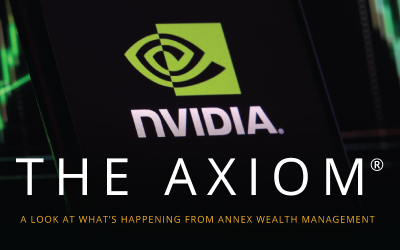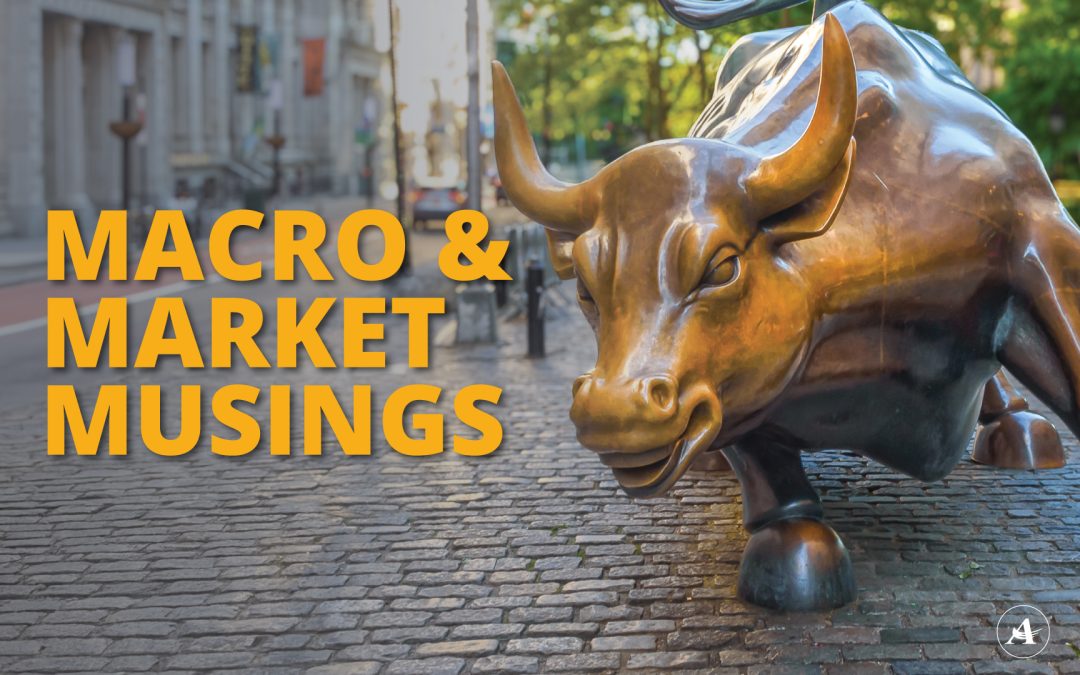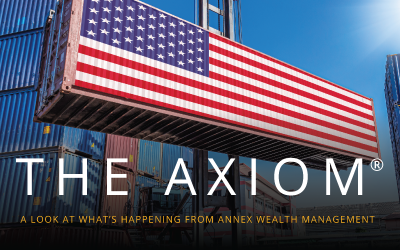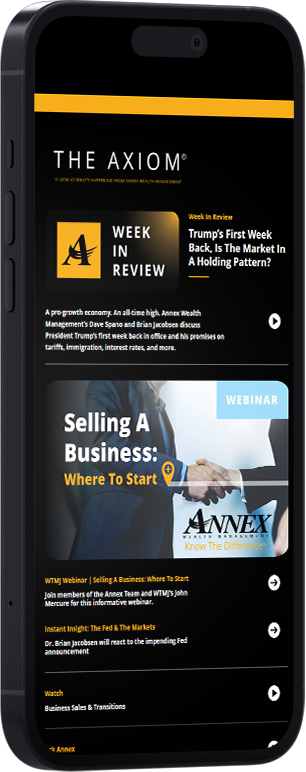Macro & Market Musings are weekly insights on Growth, Inflation, Policy and Looking Ahead from Annex Wealth Management’s Chief Economist, Brian Jacobsen. Brian, a frequent contributor on CNBC and Fox Business News, hosts regular updates on the economy and markets. Check our events page for Brian’s next live event.
Growth: Solid As A Rock?
 The Fed has described the economy as solid. Indeed, the nationwide data suggests the economy is growing at more than a 2.5% annualized real rate. The unemployment rate is low. While the economy might look solid as a rock, when you zoom in, there are lots of holes and fissures, just like when you look at any rock under a microscope. It’s nothing that is worrying for the broad outlook, but it’s taking longer for the unemployed to find work and income gains aren’t as robust or widespread as they were a year ago.
The Fed has described the economy as solid. Indeed, the nationwide data suggests the economy is growing at more than a 2.5% annualized real rate. The unemployment rate is low. While the economy might look solid as a rock, when you zoom in, there are lots of holes and fissures, just like when you look at any rock under a microscope. It’s nothing that is worrying for the broad outlook, but it’s taking longer for the unemployed to find work and income gains aren’t as robust or widespread as they were a year ago.
Inflation: Wait For It…
Just as inflation expectations are rising, actual inflation may not rise as much as feared. New tenant rent fell 2.43% y/y at the end of 2024. After rising in December, the Cleveland Fed’s monthly inflation now cast has come back down. While consumer expectations of inflation have risen and break-even inflation rates in markets have increased, maybe the next surprise will be that inflation fears do not become a reality.
Policy: A Word Salad
A plain reading of the Fed’s policy statement suggested the Fed thinks inflation progress has stalled. In December they said inflation has made progress towards their goal, but the most recent statement simply said that inflation is still elevated. Chair Powell tried to clarify that they were just trying to clean up the language of the statement, but that seemed to make it more of a mess instead. The inflation data will have to do the talking for the Fed instead.
Looking ahead: Psych
The week started with a bad case of “the Mondays.” An artificial intelligence (AI) and AI-adjacent selloff thankfully didn’t spread to the broader market. The news about a Chinese startup threatening to upend the US-dominated AI-space has created more questions than answers: is the technology really that much more efficient? Did they somehow cheat? Regardless, the way forward is likely less about the chips and more about the apps and uses.






